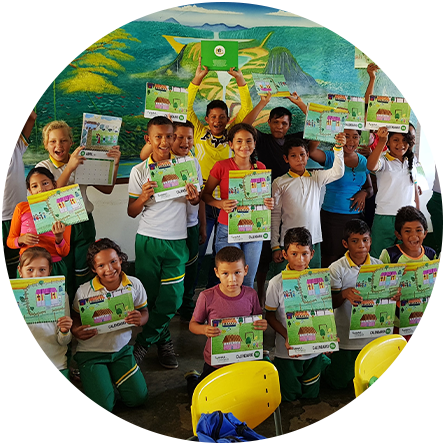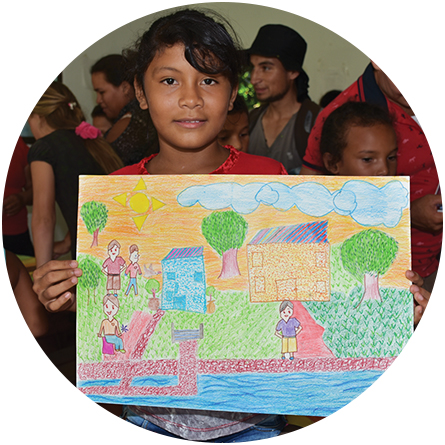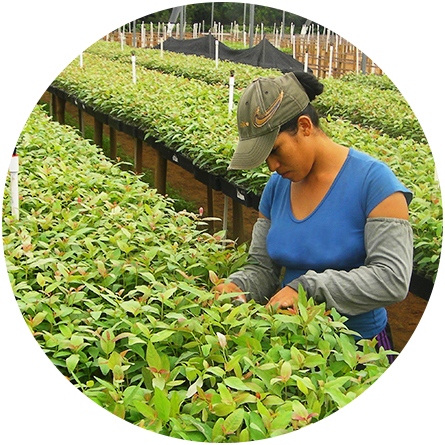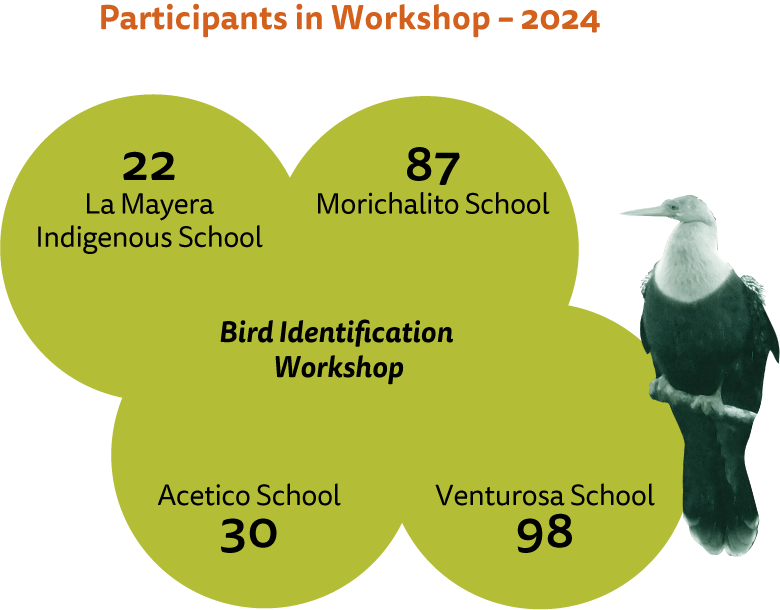
Investing in Education and Schools
FFC has sponsored the construction of school facilities in the area, including ablution facilities, which many schools do not have. The school is being utilized by several children of our staff and from the community. School attendance in rural settings is typically low as children must choose between attending school and working to support their family.
An 81% attendance rate was noted in 2019, a marked increased from previous years, due primarily to the enrollment of indigenous students from the Morichalito Community. The upgrades to school facilities provided by FFC has improved access to education for children in the region, as prior to the upgrades there were only two schools in the local villages that are situated approximately 90 km apart.
Collaboration between the school and Forest First has been key to further addressing some of these challenges. By providing resources such as school supplies and other basic necessities, we have helped reduce economic barriers that prevent many students from continuing their studies, ultimately preventing school dropout. This support has been crucial for many children who, without this assistance, would not have had access to education.
By assisting the local community with their educational infrastructure needs, and alleviating that stress, we have noted improvement in our employee engagement levels.
The school’s principal has noted that with Forest First’s presence in the region, family employment stability has improved. “Many parents, both men and women, have obtained direct or indirect jobs with the company, improving their families’ quality of life and reducing migration to other areas in search of work.” By 2025, the school plans to open a sixth-grade class, allowing students to continue their education toward secondary school.



Conserving the Future: Environmental Education for All
FFC continues to educate the local population on better cattle farming and crop cultivation practices, as well as improved treatment of the environment. We also continue to educate the our workforce in the forestry industry resulting in significant transferable skills development, including literacy.
The Environmental Education Program was created to help children better understand their environment, raise awareness of its conservation, and encourage them to become active guardians of nature. Since its inception, the program has covered topics related to environ-mental care, recognition of local biodiversity, and the protection of key species such as armadillos, mammals, and birds.
In 2024, in collaboration with the Panthera Foundation, four bird identification workshops were conducted, where students participated in activities aimed at recognizing and appreciating biodiversity and its associated habitats. These workshops engaged 237 students from four institutions in the region.


